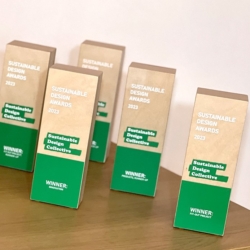January 26, 2024
Age gaps between colleagues linked to lower productivity
 Employees who are much younger than their managers report lower productivity than those closer in age due to a lack of collaboration between employees of different generations, according to new research from the London School of Economics and Political Science (LSE) in collaboration with consulting firm, Protiviti. An external survey conducted by LSE of 1,450 employees in the finance, technology and professional services industries in the UK and USA, found that friction between different generations was driving down productivity and that firms need to develop intergenerationally inclusive work practices. (more…)
Employees who are much younger than their managers report lower productivity than those closer in age due to a lack of collaboration between employees of different generations, according to new research from the London School of Economics and Political Science (LSE) in collaboration with consulting firm, Protiviti. An external survey conducted by LSE of 1,450 employees in the finance, technology and professional services industries in the UK and USA, found that friction between different generations was driving down productivity and that firms need to develop intergenerationally inclusive work practices. (more…)




































January 24, 2024
The final word on workplace wellbeing
by Mark Eltringham • Comment, Wellbeing